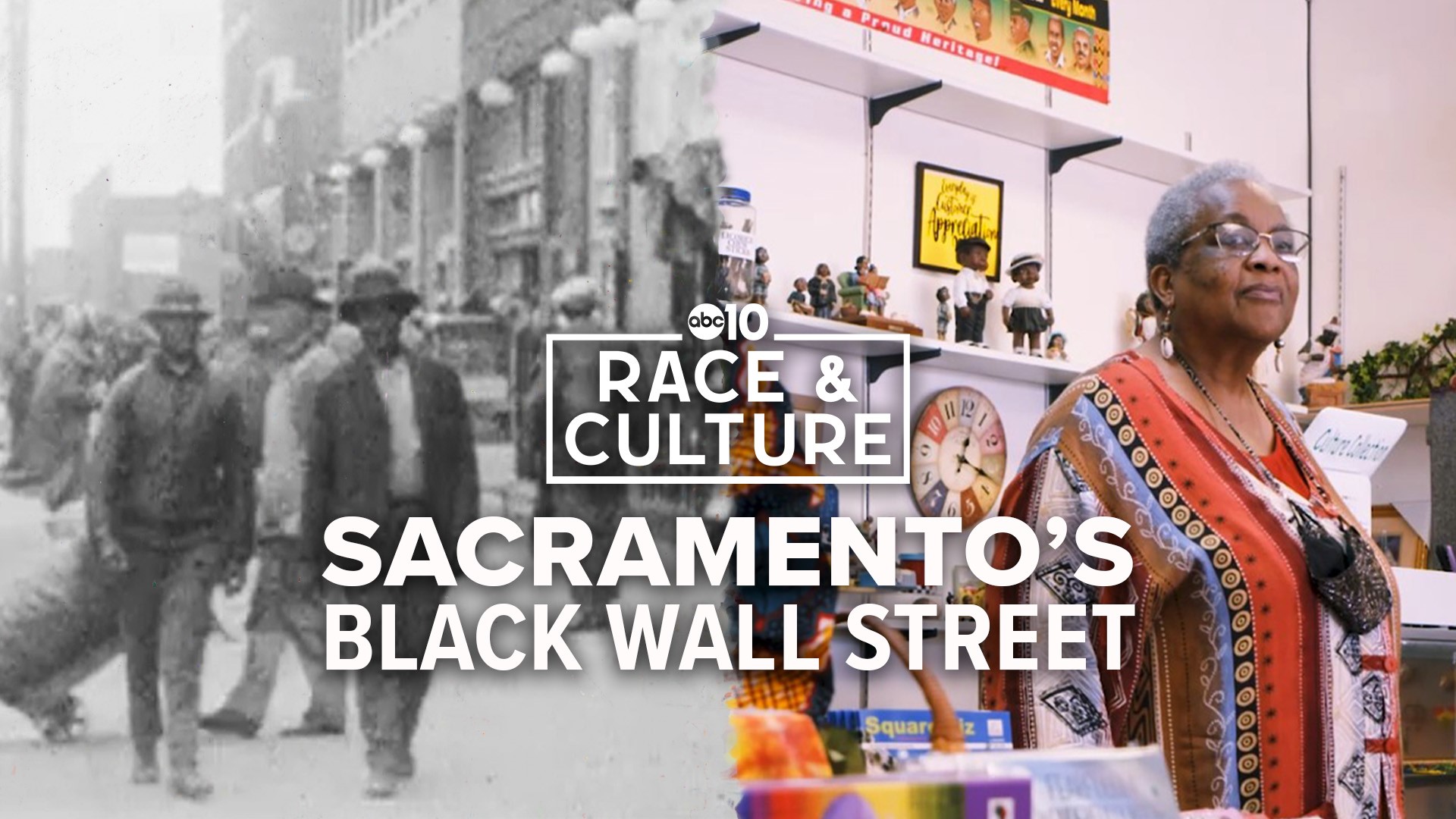SACRAMENTO, Calif. — At the onset of the COVID-19 pandemic, Sacramento resident Genea Slaughter needed to find a way to keep her children busy.
“I figured what better way to do that than to build them their own personal garden that they would have to go outside and tend to every day,” said Slaughter.
Her passion for building wood products evolved into Playwood Crafting, an online business where she sells garden and sensory boxes for kids and adults. As a first-time entrepreneur, Slaughter was eager to find resources to help her during this new endeavor.
In 2022, she heard about a new program called the Black Entrepreneurs Success Academy (BESA), a 13-week course in Sacramento providing Black business owners with a range of skills to help grow their business.
“It’s very difficult to figure out what you can do to build, scale, [and] sustain a business and I think that's where we come in... we're going to show you how to do it,” said Anthony Robinson, co-founder of BESA.
Throughout the course, students learn how to create a business, marketing and financial plan.
Robinson co-founded BESA with Robynne Rose-Haymer. Both are currently getting their doctorates in education, which is how they met. What inspired these two scholars to create the Black Entrepreneurs Success Academy was a stroke of serendipity.
In April 2022, our ABC10 Race and Culture team hosted a film screening for a two-part series called “Sacramento’s Black Wall Street.”
The project highlighted the Florin Square Shopping Center in South Sacramento where more than 200 Black owned businesses and nonprofits operate. Our series traced the roots to one of the most prosperous Black Wall Streets in the United States — the Greenwood District in Tulsa, Oklahoma.
A panel discussion followed to learn more about the needs and challenges of current Black entrepreneurs in Sacramento. Guest panelist Rose-Haymer said the conversation was a “catalyst” for her.
“Screening a documentary like ['Sacramento’s Black Wall Street’] brings together a certain group of interested folks,” said Rose-Haymer. “And that panel really served as a knowledge lifter for me that there is information that people need that is not readily accessible.”
Shortly after the film screening, Rose-Haymer met with Robinson to figure out how to help local Black entrepreneurs. Little did she know Robinson had built a curriculum specifically for entrepreneurs during the pandemic. They launched BESA with the curriculum over the course of a few months.
Some of the sponsors included The Sacramento Observer, The Sacramento Black Chamber of Commerce and the Florin Square community Development Corporation.
While there are programs at the college level teaching someone how to be successful in business, the co-founders say they are aware those programs exist and serve a certain niche population.
“We have a heart for the understanding that traditional education models are not best suited for marginalized populations,” said Rose-Haymer.
Brigitte Muderhwa runs The House of Royals, a place where visitors can reconnect and reclaim their African roots by taking selfies in traditional African garments. She has been an entrepreneur for 15 years.
“But I always felt something was missing in my journey and the BESA Academy, kind of, it was like, my dream come true as training and education,” said Muderhwa. “It's the best that can exist at the moment for the community because the directors saw what was missing in the training of entrepreneurs.”
The academy is a “for us, by us” program designed specifically for African Americans.
“One of the things that I've found is there is a huge gap in access to the knowledge, to the education, to finances, specifically for African Americans, predominantly for African Americans living in low-income communities,” said Robinson. “So, one of the reasons that I co-founded this program was because of people like me, people who didn't have much guidance, I had to learn many of the things on my own.”
In 2020, only 3% of businesses in the U.S. were Black-owned compared to 86% of White-owned businesses, according to data from the Pew Research Center.
“Structural racism is not a myth anymore,” said Rose-Haymer. “It's very, very clear that there were some systems, in particular, financial institutions that worked adversely toward Black folks and people of color in terms of being able to access pathways to wealth.”
Black Americans are less likely to attain wealth than white Americans and are less likely to move up the economic ladder and more likely to slide down it, according to a report by The Brookings Institution on intragenerational wealth mobility in the United States.
Ultimately, the co-founders hope the academy helps Black entrepreneurs close the wealth gap.
“We look at BESA as the catalyst for that, like this is the foundation, right?” said Robinson. “One person, which leads to one family, which ultimately leads to whole communities, swiftly closing that wealth gap, at least here in Sacramento specific.”
It’s not lost on Slaughter being a Black entrepreneur is everything her ancestors couldn’t be. She is taking a “leap” and the Black Entrepreneurship Success Academy is part of her journey.
“We all have this idea, and we want to build our dreams off of our idea, and [BESA] was able to open doors for me like for pitching, showing me how to talk to investors, showing me where to bank,” said Slaughter. “The networking capacity has been great; you meet so many other likeminded people that are all going the same way. So, it's like you can collaborate to really like cultivate your dream.”
The next cohort begins in July 2023.
We want to hear from you!
The Race and Culture team's mission is to serve our diverse communities through authentic representation, community engagement and equitable reporting.
Accomplishing our goals of inclusive reporting requires hearing from you. Is there a person or place that you want us to highlight? Email us at raceandculture@abc10.com or fill out the form below.

